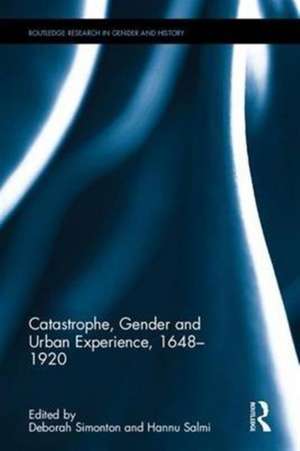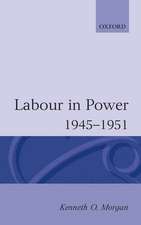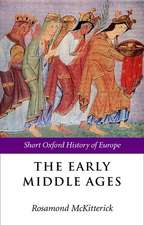Catastrophe, Gender and Urban Experience, 1648-1920: Routledge Research in Gender and History
Editat de Deborah Simonton, Hannu Salmien Limba Engleză Hardback – 31 oct 2016
| Toate formatele și edițiile | Preț | Express |
|---|---|---|
| Paperback (1) | 298.10 lei 6-8 săpt. | |
| Taylor & Francis – 23 mai 2019 | 298.10 lei 6-8 săpt. | |
| Hardback (1) | 848.98 lei 6-8 săpt. | |
| Taylor & Francis – 31 oct 2016 | 848.98 lei 6-8 săpt. |
Din seria Routledge Research in Gender and History
-
 Preț: 295.22 lei
Preț: 295.22 lei -
 Preț: 279.66 lei
Preț: 279.66 lei - 9%
 Preț: 936.40 lei
Preț: 936.40 lei - 9%
 Preț: 936.17 lei
Preț: 936.17 lei -
 Preț: 349.46 lei
Preț: 349.46 lei - 18%
 Preț: 1112.90 lei
Preț: 1112.90 lei - 16%
 Preț: 299.52 lei
Preț: 299.52 lei - 18%
 Preț: 1001.51 lei
Preț: 1001.51 lei -
 Preț: 407.09 lei
Preț: 407.09 lei - 18%
 Preț: 1053.16 lei
Preț: 1053.16 lei -
 Preț: 413.55 lei
Preț: 413.55 lei -
 Preț: 410.07 lei
Preț: 410.07 lei - 18%
 Preț: 1002.60 lei
Preț: 1002.60 lei - 26%
 Preț: 763.23 lei
Preț: 763.23 lei -
 Preț: 449.41 lei
Preț: 449.41 lei -
 Preț: 388.26 lei
Preț: 388.26 lei - 18%
 Preț: 997.73 lei
Preț: 997.73 lei - 16%
 Preț: 298.39 lei
Preț: 298.39 lei -
 Preț: 417.36 lei
Preț: 417.36 lei - 18%
 Preț: 1216.25 lei
Preț: 1216.25 lei -
 Preț: 413.76 lei
Preț: 413.76 lei -
 Preț: 365.16 lei
Preț: 365.16 lei -
 Preț: 367.45 lei
Preț: 367.45 lei - 14%
 Preț: 298.61 lei
Preț: 298.61 lei -
 Preț: 386.73 lei
Preț: 386.73 lei -
 Preț: 416.22 lei
Preț: 416.22 lei - 26%
 Preț: 819.48 lei
Preț: 819.48 lei - 30%
 Preț: 847.31 lei
Preț: 847.31 lei - 18%
 Preț: 1061.93 lei
Preț: 1061.93 lei - 31%
 Preț: 763.89 lei
Preț: 763.89 lei - 18%
 Preț: 1005.17 lei
Preț: 1005.17 lei - 30%
 Preț: 848.98 lei
Preț: 848.98 lei -
 Preț: 435.17 lei
Preț: 435.17 lei - 18%
 Preț: 1111.90 lei
Preț: 1111.90 lei -
 Preț: 415.67 lei
Preț: 415.67 lei
Preț: 848.98 lei
Preț vechi: 1216.56 lei
-30% Nou
Puncte Express: 1273
Preț estimativ în valută:
162.47€ • 168.100$ • 134.13£
162.47€ • 168.100$ • 134.13£
Carte tipărită la comandă
Livrare economică 14-28 aprilie
Preluare comenzi: 021 569.72.76
Specificații
ISBN-13: 9781138696976
ISBN-10: 1138696978
Pagini: 268
Ilustrații: 46
Dimensiuni: 152 x 229 x 22 mm
Greutate: 0.52 kg
Ediția:1
Editura: Taylor & Francis
Colecția Routledge
Seria Routledge Research in Gender and History
Locul publicării:Oxford, United Kingdom
ISBN-10: 1138696978
Pagini: 268
Ilustrații: 46
Dimensiuni: 152 x 229 x 22 mm
Greutate: 0.52 kg
Ediția:1
Editura: Taylor & Francis
Colecția Routledge
Seria Routledge Research in Gender and History
Locul publicării:Oxford, United Kingdom
Public țintă
Postgraduate and UndergraduateCuprins
1. Introduction: Catastrophe, Gender and Urban Experience
[Deborah Simonton and Hannu Salmi]
Part 1: Catastrophe in the Age of Enlightenment and Absolutism
2. Surviving the Siege: Catastrophe, Gender and Memory in La Rochelle
[Deborah Simonton]
3. Between Despair And Hope: The 1755 Earthquake In Lisbon
[Helena Murteira]
4. Drowned in Westminster: A Social Catastrophe in a West London Suburb, 1550-1650
[Imtiaz Habib and Michan Myer]
5. The Plague and the Urban Police in Montpellier at the Beginning of the Eighteenth Century
[Nicolas Vidoni]
6. Catastrophe, the Civilizing Process and the Urban Built Environment in the Eighteenth-Century British Atlantic World
[Emma Hart]
Part 2: Catastrophe in the Age of Democracy
7. Catastrophe, Emotions and Guilt : The Great Fire of Turku, 1827
[Hannu Salmi]
8. Personal Catastrophe, Communal Misfortune: Bankruptcy in an Eighteenth-Century Merchant Family
[Jarkko Keskinen]
9. City Upside Down: Laughing at the Flooding of the Danube in Late Nineteenth-Century Vienna
[Heidi Hakkarainen]
10. The Baltic Storm Surge in November 1872: Urban Processes, Gendered Vulnerability and Scientific Transformations
[Rasmus Dahlberg, Kristoffer Albris and Martin Jebens]
11. Managing the Catastrophe: Cholera, Urban Community and Health Politics in Imperial Moscow
[Anna Mazanik]
12. One Disaster After Another: The Debate about the University of Ghent as Unfinished Business of the First World War, 1918-1923
[David J. Hensley]
Guide to Further Reading
[Deborah Simonton and Hannu Salmi]
Part 1: Catastrophe in the Age of Enlightenment and Absolutism
2. Surviving the Siege: Catastrophe, Gender and Memory in La Rochelle
[Deborah Simonton]
3. Between Despair And Hope: The 1755 Earthquake In Lisbon
[Helena Murteira]
4. Drowned in Westminster: A Social Catastrophe in a West London Suburb, 1550-1650
[Imtiaz Habib and Michan Myer]
5. The Plague and the Urban Police in Montpellier at the Beginning of the Eighteenth Century
[Nicolas Vidoni]
6. Catastrophe, the Civilizing Process and the Urban Built Environment in the Eighteenth-Century British Atlantic World
[Emma Hart]
Part 2: Catastrophe in the Age of Democracy
7. Catastrophe, Emotions and Guilt : The Great Fire of Turku, 1827
[Hannu Salmi]
8. Personal Catastrophe, Communal Misfortune: Bankruptcy in an Eighteenth-Century Merchant Family
[Jarkko Keskinen]
9. City Upside Down: Laughing at the Flooding of the Danube in Late Nineteenth-Century Vienna
[Heidi Hakkarainen]
10. The Baltic Storm Surge in November 1872: Urban Processes, Gendered Vulnerability and Scientific Transformations
[Rasmus Dahlberg, Kristoffer Albris and Martin Jebens]
11. Managing the Catastrophe: Cholera, Urban Community and Health Politics in Imperial Moscow
[Anna Mazanik]
12. One Disaster After Another: The Debate about the University of Ghent as Unfinished Business of the First World War, 1918-1923
[David J. Hensley]
Guide to Further Reading
Descriere
Employing a broad definition of catastrophe, this book examines how urban communities conceived, adapted to, and were transformed by catastrophes. Competing views of gender figure in the telling and retelling of these tragedies, which are mediated by myth and memory. This is a nuanced account that physically and metaphorically maps men and women into the urban landscape and the worlds of catastrophe.













